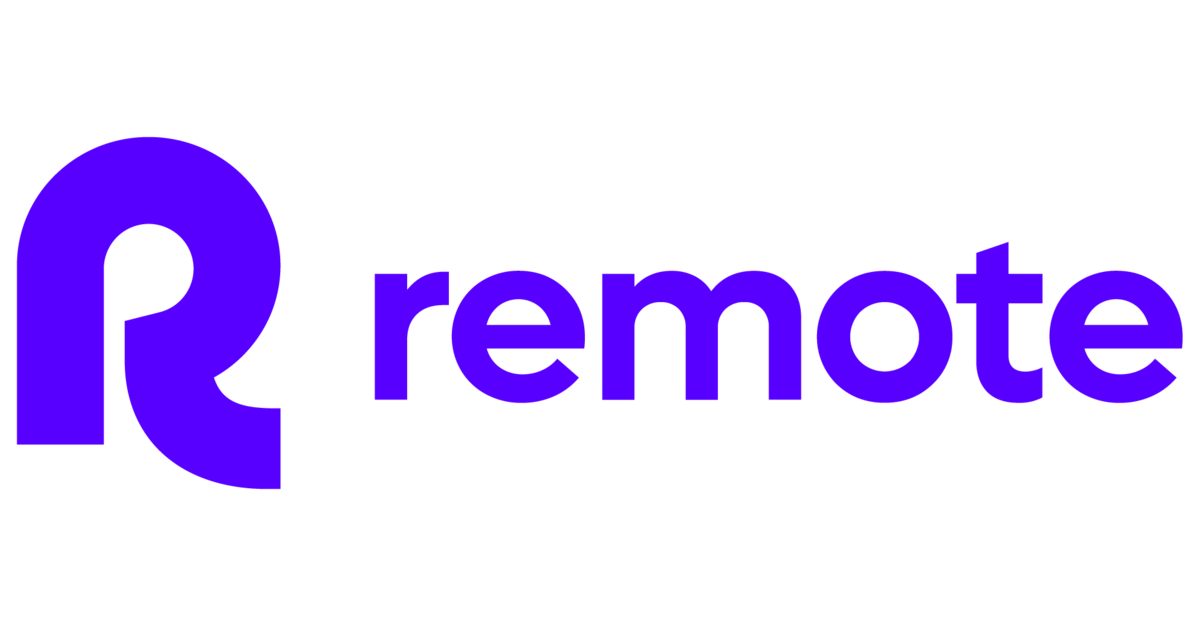
EOR or Employer of Record is an important service that every remote-first, hybrid, or distributed company should consider using.
Not only does it offer huge cost savings and flexibility for remote teams, it also gives them the ability to stay compliant while managing risks that come with operating a remote company.
In this post, we take you through the following:
- What is an Employer of Record (EOR)?
- The need for EOR services in the age of remote work
- Why your remote or distributed team should use an EOR
- Factors to consider when choosing an EOR service provider
- Some of the best EOR service provider you can use
Let’s dive deeper.
What is an Employer of Record (EOR)
An Employer of Record (EOR) is a third-party organization that assumes responsibility for managing the administrative tasks associated with being an employer, including payroll processing, tax withholding and reporting, and employee benefits administration.
When you use an Employer of Record as a company, the service provider (EOR) becomes the official employer of your company’s workers in whichever country you’re using them. This means that the EOR handles all the legal and regulatory compliance issues related to employment in that jurisdiction (on your behalf), such as verifying employment eligibility, managing workers’ compensation insurance, and complying with wage and hourly employment laws.
As a remote company, you will still be in control of the day-to-day activities of your workers, such as setting work schedules and job duties.
However, the EOR is responsible for managing the administrative aspects of employment, freeing your company from those tasks and allowing you to focus on its core business activities.
Using an EOR can be particularly beneficial if you want to expand into new regions or countries, as it allows you to quickly establish a legal presence and comply with local employment laws without having to establish a separate legal entity.
The Rise of EORs in the era of remote work

The rise of remote work in recent years has led to a corresponding rise in the use of Employer of Record (EOR) organizations. As more companies embrace remote work, they have faced the challenge of managing and complying with employment laws in multiple jurisdictions.
EOR services have emerged as a solution to this challenge. By assuming responsibility for the administrative tasks associated with employment, EORs enable companies to expand their remote workforce without having to navigate the complex legal and regulatory requirements of different countries or regions.
In addition to providing compliance support, EOR organizations also offer other benefits to companies that are embracing remote work. For example, EORs can manage payroll processing and benefits administration, which can be particularly challenging for companies with a distributed workforce. EORs can also provide local expertise and support, helping companies navigate the cultural nuances and employment regulations of different regions.
The rise of EOR organizations has also enabled companies to be more agile and flexible in their hiring practices. With an EOR in place, companies can quickly and easily onboard new workers in different locations, without having to set up a legal entity in each location.
What Are The Responsibilities of an EOR?
An Employer of Record (EOR) is responsible for a range of administrative tasks associated with employment. Here are some of the responsibilities that an EOR is typically expected to handle:
- Payroll processing: An EOR is responsible for processing payroll for employees, including calculating wages and salaries, deducting taxes and other withholdings, and distributing paychecks.
- Benefits administration: An EOR can manage benefits administration on behalf of the employer, including enrollment, communication with employees, and compliance with regulations.
- Compliance: An EOR is responsible for ensuring compliance with local employment laws and regulations, including tax laws, labor laws, and other legal requirements.
- Tax withholding and reporting: An EOR is responsible for withholding and reporting taxes on behalf of the employer, including income taxes, social security taxes, and other taxes that may be required.
- Risk management: An EOR can help employers manage risks associated with employment, including worker misclassification, tax issues, and compliance violations.
- HR support: An EOR can provide support for various HR-related tasks, including employee onboarding, performance management, and termination.
- Legal support: An EOR can provide legal support for employment-related issues, including drafting and reviewing employment contracts, policies, and other legal documents.
- Time and attendance tracking: An EOR can manage time and attendance tracking, ensuring that employees are paid accurately for the hours they work.
Why use an Employer of Record (EOR)?
There are several reasons why you may choose to use an Employer of Record (EOR). These include:
- Compliance: One of the primary reasons why you might want to use an EOR as a remote company is to ensure compliance with employment laws and regulations in different jurisdictions. When your company hires workers in a new location, it can be challenging to navigate the legal and regulatory requirements of that location. An EOR can assume responsibility for compliance, ensuring that you are adhering to local employment laws and regulations.
- Flexibility: An EOR can provide your company with the flexibility to quickly onboard new workers in different locations. Rather than having to set up a legal entity in each location, which can be time-consuming and costly, companies can use an EOR to manage the administrative tasks associated with employment.
- Cost savings: Using an EOR can be more cost-effective than setting up a legal entity in a new location. This is because an EOR can provide economies of scale, enabling your company to benefit from lower costs for payroll processing, benefits administration, and other employment-related services.
- Risk management: An EOR can help you manage the risks associated with employment, such as worker misclassification, tax issues, and compliance violations. By assuming responsibility for these risks, an EOR can help you minimize your exposure to legal and financial liabilities.
- Focus on core business: Using an EOR can enable you to focus on your company’s core business activities, rather than the administrative tasks associated with employment. By outsourcing these tasks to an EOR, companies can free up time and resources to focus on their strategic goals and objectives.
Factors to consider when choosing an EOR service provider
There are several factors to consider when choosing an employer of record (EOR) for your business:
- Compliance: It’s important to choose an EOR that is compliant with all relevant employment laws and regulations in the countries where you plan to hire employees.
- Cost: Consider the cost of the EOR’s services, including any fees or commissions they charge. Compare this to the cost of setting up and maintaining an in-house HR team.
- Services offered: Consider the range of services offered by the EOR. Some EORs only handle payroll and tax compliance, while others offer a full suite of HR services such as benefits management and employee onboarding.
- Reputation: Look for an EOR with a good reputation in the industry. Read reviews and ask for references from other businesses that have used their services.
- Customization: Consider whether the EOR offers customizable solutions that meet the specific needs of your business.
- Flexibility: Choose an EOR that is flexible and able to adapt to changing business needs.
- Support: Look for an EOR that provides excellent customer support and is responsive to your needs.
By considering these factors, you can choose an EOR that will help your business effectively manage its HR needs and ensure compliance with employment laws.

Employer of Record service providers to check out
There are several Employer of Record (EOR) services available in the market, and the best one for you will depend on your specific needs and requirements. Here are some of the best EOR services you can use.
EOR from Remote
Remote provides a comprehensive Employer of Record (EOR) solution to help companies employ and manage their remote workforce with ease. As your EOR, Remote takes on the role of an official employer, handling all the administrative and compliance-related tasks that come with managing employees in different locations.
Remote’s EOR solution offers a wide range of services, including payroll processing, benefits administration, tax withholding and reporting, and compliance support. Additionally, Remote provides a suite of tools and resources to help you manage your remote team, including time tracking and expense reporting features, and HR support.
READ MORE: Remote.com Review: Hire, Onboard, Pay, and Manage a 100% Remote Workforce
EOR from Squad
If you are looking to expand your workforce to a new country, Skuad’s Employer of Record (EOR) platform can help simplify the process of employing remote workers abroad. With Skuad’s EOR solution, you can enjoy the benefits of having an official employer presence in your desired location, without having to set up a legal entity.
Skuad’s EOR platform provides a range of services to help you navigate the complexities of employing remote workers in a different country. From managing payroll and compliance requirements to providing benefits and insurance coverage, Skuad’s EOR solution has got you covered.
EOR services from Multiplier
More generally, Multiplier offers a range of tools and resources to help companies hire, onboard, and manage their remote workforce.
Multiplier’s EOR services include payroll processing, tax withholding and reporting, and benefits administration. By assuming responsibility for these tasks, Multiplier enables companies to expand their workforce in different locations without having to navigate the complex legal and regulatory requirements of each location.
EOR services from Native Teams
Overall, Native Teams’ EOR services can provide companies with a range of benefits, including compliance support, cost savings, and risk management. By outsourcing the administrative tasks associated with employment to an EOR like Native Teams, companies can focus on their core business activities and expand their workforce in a more flexible and cost-effective manner.
EOR from Panther
Panther’s Employer of Record (EOR) services offer startups the opportunity to access the benefits of being an employer without having to deal with the associated responsibilities. When hiring in a different country, such as Kenya or Argentina, Panther serves as a plug-and-play partner, taking care of all the time-consuming tasks, including payroll and compliance.
All you need to do is choose the location where you want to hire from, and Panther will handle all the necessary processes to onboard them onto your team. Panther’s EOR services cover various HR-related tasks, such as payroll, compliance, taxes, and accounting, among others. This way, you can focus on growing your business while Panther takes care of the administrative tasks.

Remote Business Account
- Workcation Wonderland: The Best Places to Work Remotely and Travel during the Holidays - September 20, 2023
- 50 Zoom Trivia Questions And Answers To Excite Your Remote or Hybrid Team - September 13, 2023
- Lano.io Review: Simplifying Global Employment and Payroll in 170+ Countries - September 13, 2023



